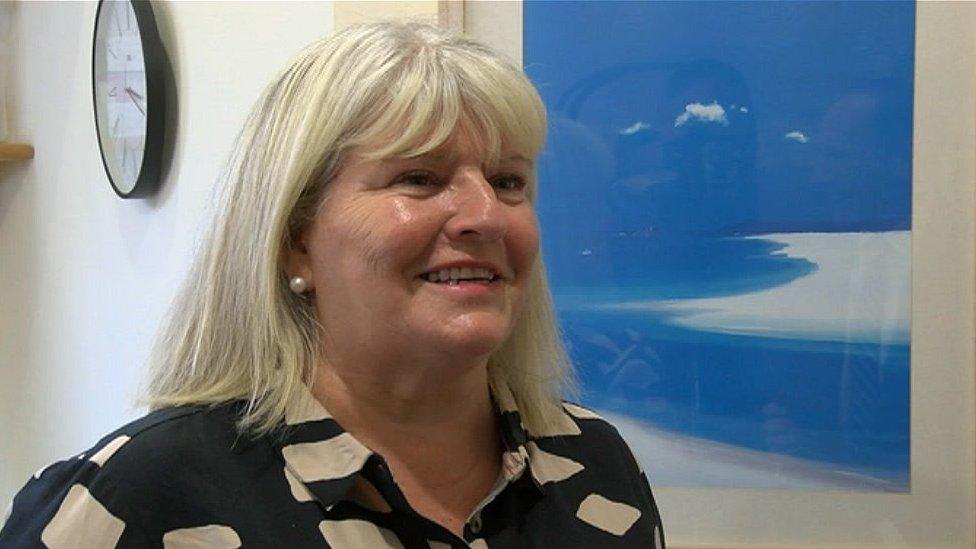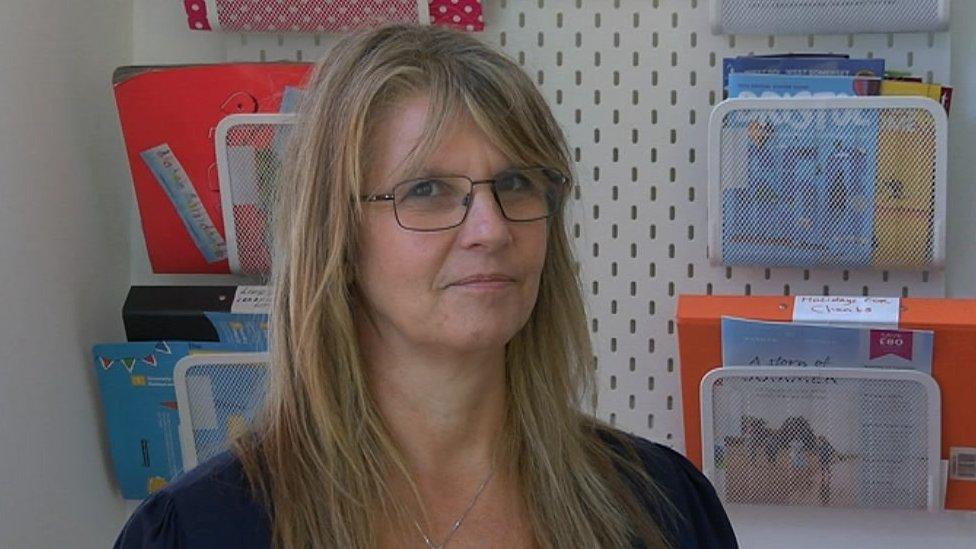Bristol group raises awareness of menopausal symptoms at work
- Published

Ms Hayden said there is a "huge" lack of education in women's health
A group is raising awareness of menopausal symptoms at work.
Two-thirds of menopausal women aged 40-60 face difficulties, external at work, according to a study by the Chartered Institute of Personnel and Development (CIPD).
The Independent Health and Wellbeing Group in Bristol hopes to change this by offering educational events.
The group's Smash The Stigma event took place in Bristol on Thursday night and discussed how businesses could better support their staff.
'Lack of education'
They discussed the importance of creating a menopause-friendly environment, understanding menopause discrimination in a group setting, the forgotten financial impact, work-life balance when struggling with daily symptoms and reasonable adjustments that can be made.
The study by CIPD found two-thirds (67%) of women (aged 40-60 in employment) with experience of menopausal symptoms said they had a mostly negative effect on them at work.
Hazel Hayden, founder of the group, menopause specialist and consultant nurse, said: "There's a huge lack of education in women's health.
"Women themselves often don't even know when they're in perimenopause - the time around menopause - let alone how they can help themselves at this difficult time.
"Me and my team of nurses want to talk about women's health in relation to men's health and the wider business context."

The panel discussed the importance of creating a menopause-friendly environment at work
Sharon Davis, managing director of mental health agency New Beginnings Bristol, who attended the event, added: "They need to have the capability to move forward in their job.
"Employers need to understand what they go through individually and to get the right information to enable them to support themselves, but as a company to be there for employees to come to and talk to and have a manager who is supportive."
Ms Hayden said: "Most women suffer with brain fog, poor memory and poor sleep.
"A lot of women end up leaving the workplace because of this.
"So, it's about having a really supportive work environment."

Follow BBC West on Facebook, external, X, external and Instagram, external. Send your story ideas to: bristol@bbc.co.uk , external
Related topics
- Published18 October 2023

- Published23 July 2022
